Jazz music crosses, mixes and unites generations, and the 10 concerts I’ve seen at this year’s EFG London Jazz Festival (out of more than 300 in total) have really brought that home.
The oldest musician I heard is a completely lovable miracle. Matt Pannell’s picture (above) shows the empathy and enthusiasm of the great Kirk Lightsey. The pianist was born in Detroit in 1937, the same year as Alice Coltrane, and they shared the same piano teacher. His magical solo piano album "I Will Never Stop Loving You" from 2021, incidentally, is required listening.
Lightsey defies the seasons. On the Wednesday of the festival he chose to play “Spring is Here”…in November. He then proceeded to warm the heart as an 87-year-old... playing Wayne Shorter’s “Infant Eyes”. But alongside that infallible charm and grace also go a massive directive energy and a steeliness that can take you by surprise. And sometimes, sadly, it’s needed. There was a rowdy table in for his show at Pizza Express Dean Street, so the veteran took to thumping some major chords down and shout-chorusing “Shut-UP!!!”. It worked.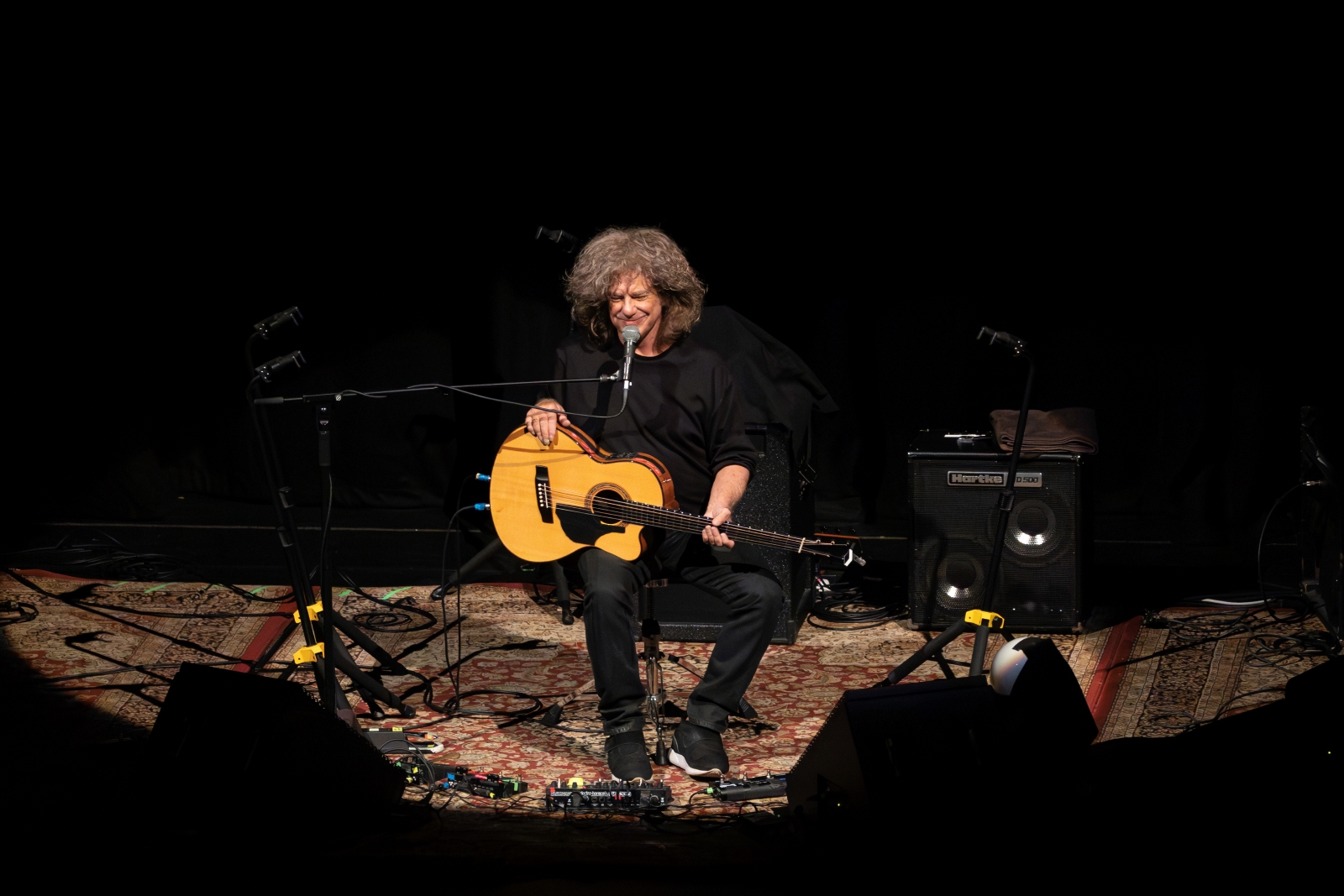 Pat Metheny (pictured above: © Sara Platt / Saffron Hall) may be a comparative youngster, but this giant of the jazz world was 70 earlier this year. He gave two solo shows to a packed Barbican Hall as part of a major European tour. Metheny will always make sure that he doesn’t just impress but also move an audience, so on this occasion we had the reveal of the orchestrion towards the end of the show, but also a repertoire in which soothing, heartfelt and beautifully paced and played ballads (“Alfie”, “Wichita Lineman”, Jobim tunes, and echoes of “Beyond the Missouri Sky” with Charlie Haden...) were never far away. It was also an engaging show in which Metheny talked quite a bit, and interestingly, explaining how his musical leanings and his choices of instruments have evolved.
Pat Metheny (pictured above: © Sara Platt / Saffron Hall) may be a comparative youngster, but this giant of the jazz world was 70 earlier this year. He gave two solo shows to a packed Barbican Hall as part of a major European tour. Metheny will always make sure that he doesn’t just impress but also move an audience, so on this occasion we had the reveal of the orchestrion towards the end of the show, but also a repertoire in which soothing, heartfelt and beautifully paced and played ballads (“Alfie”, “Wichita Lineman”, Jobim tunes, and echoes of “Beyond the Missouri Sky” with Charlie Haden...) were never far away. It was also an engaging show in which Metheny talked quite a bit, and interestingly, explaining how his musical leanings and his choices of instruments have evolved.
At the other end of the scale are young musicians turning heads as they increasingly find their moorings. Xhosa Cole was at Kings Place on the final night of the festival, roaming freely over the repertoire of Thelonious Monk in some very classy company. Pianist Pat Thomas has massive authority, and drummer Tim Giles hears everything, responds to it in kind, and has a touch and a sensitivity that bring to mind the late great Paul Motian. Also there is the benign shadow of the one of the most influential and effective jazz educators in the world hovering over this project: Hans Koller who runs the programme at Trinity Laban – Bavaria’s loss is Britain’s gain – is truly, deeply and sanely rather than madly Monk-ish.
The EFG London Jazz Festival also hosts the BBC Young Jazz Musician competition which Cole won in 2018. This year’s winner was bassist Ursula Harrison, who is already building the secure foundations of a career in both the UK and in Holland, and the competition will also have helped to bring the name and the gutsy playing of trumpeter Klara Devlin to many more ears.
Younger musicians were also present in a trio strongly led by Jasper Høiby. The Danish bassist is now in his mid-forties, whereas both South Korean pianist Chaerin Im and Dutch drummer Jamie Peet, of Tin Men and the Telephone are at least a decade younger. The trio is now a regular touring band, and Høiby’s love of English understatement when chatting to the audience is in contrast with his clarity, persuasiveness and decisiveness as both player and leader.
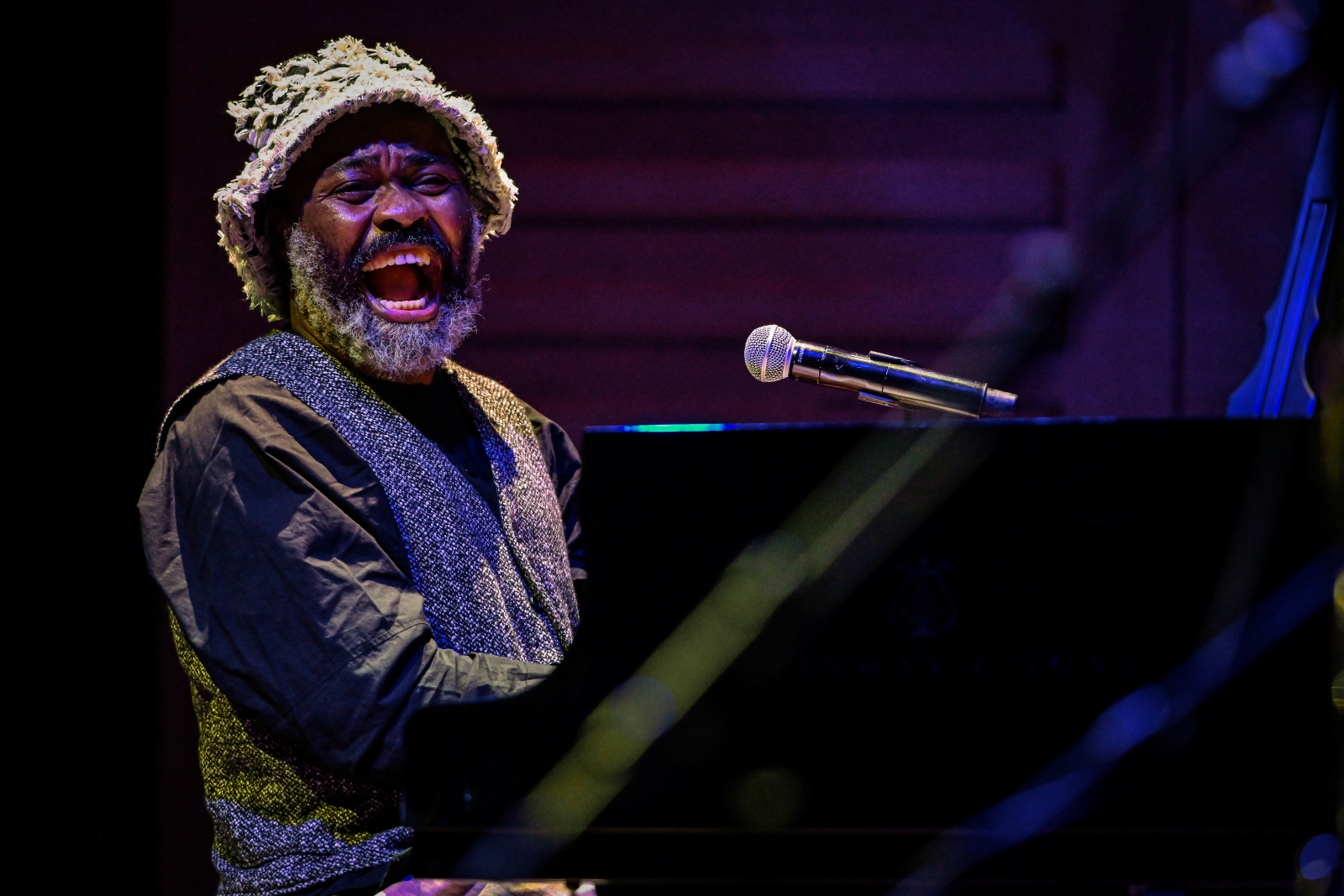 There is a much-repeated trope in jazz circles that we have only ever heard from a couple of the bigger names from the South African scene, and that its depth and strength are not fully appreciated. One figure who is making a difference to that is Nduduzo Makhathini (pictured above: © Monika S Jakubowska), whose trio performed a glorious set to a hugely appreciative house in Kings Place Hall One on the Thursday of the festival. One of Makhathini’s piano heroes is Bheki Mseleku, who lived for many years here in London – he mentions him no fewer than 47 times in his recently published doctoral thesis.
There is a much-repeated trope in jazz circles that we have only ever heard from a couple of the bigger names from the South African scene, and that its depth and strength are not fully appreciated. One figure who is making a difference to that is Nduduzo Makhathini (pictured above: © Monika S Jakubowska), whose trio performed a glorious set to a hugely appreciative house in Kings Place Hall One on the Thursday of the festival. One of Makhathini’s piano heroes is Bheki Mseleku, who lived for many years here in London – he mentions him no fewer than 47 times in his recently published doctoral thesis.
Another musician developing all the time, and making good things happen, is trumpeter Mark Kavuma. He had a big array of guests for his Banger Factory micro-label’s night at the Queen Elizabeth Hall on the first Sunday of the festival. There was a fine array of pianists at the piano on the left hand side of the stage, but I had been given a fairly hopeless seat from which their artistry was a murky soup. The instrumentalists whom I could hear properly were two Hammond organists. Ross Stanley was there to celebrate the album launch of a new disc from fine guitarist Artie Zaitz who had lent the Southbank Centre his Hammond for the evening. Ross Stanley is a player of astonishing freshness and optimism who turns a new page, wipes the slate clean at the top of every new chorus. And he works so hard, he’s a national treasure. The other organist was Reuben James. He has had such a broad career away from jazz, this appearance on a jazz stage felt like a triumphant homecoming. His sensitivity to the range of sound the instrument can encompass was a revelation. More please.
Jamie Cullum’s Royal Festival Hall show was a reminder of how good the singer/pianist and his band are when it comes to the task of getting an audience into a good mood. The Southbank crowd was engaged and on his side from the start. I have indelible memories from other occasions – Cheltenham stands out – when Cullum was required to apply an “extreme defrost” setting to an audience, in order to ensure that more cautious folk can have a good time, but that was not a button he needed to press this time.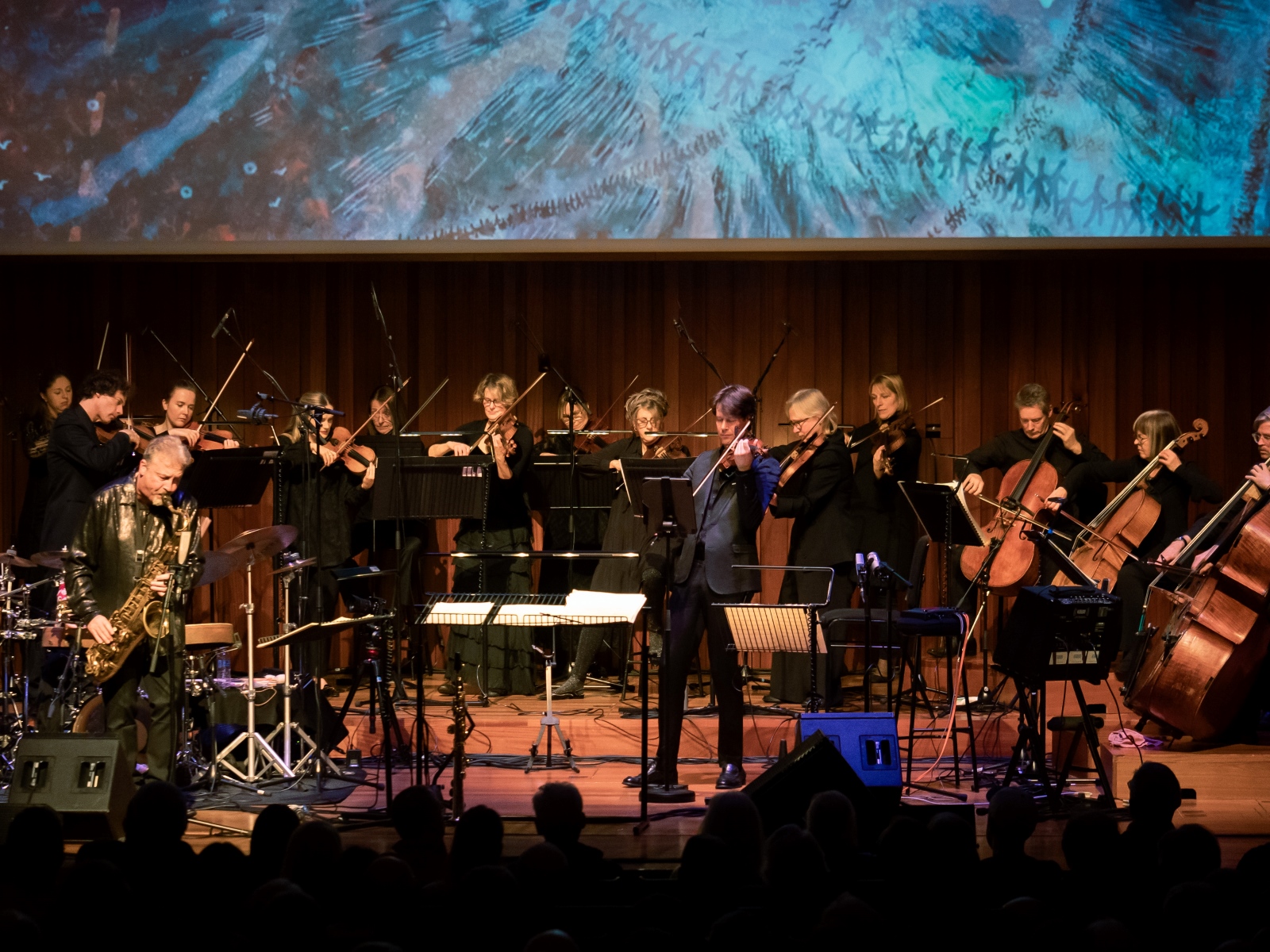 A very different show was to be heard from the Britten Sinfonia at Milton Court (photo above by Shoel Stadlen/ Britten Sinfonia). The concert, for an almost full house, was assembled and led by saxophonist Tim Garland, and centred on the premiere performance of his new five-movement work “The Forever Seed”. This is a major work, in essence a violin concerto, written very much with the instrumental virtuosity and versatility of violinist Thomas Gould in mind, and it indeed gave many insights into the soloist’s emotional and technical range as well as the variety of timbre and skill as an improviser. Drummer Asaf Sirkis and pianist Gwilym Simcock provided inspiring rhythmic momentum and propulsion.
A very different show was to be heard from the Britten Sinfonia at Milton Court (photo above by Shoel Stadlen/ Britten Sinfonia). The concert, for an almost full house, was assembled and led by saxophonist Tim Garland, and centred on the premiere performance of his new five-movement work “The Forever Seed”. This is a major work, in essence a violin concerto, written very much with the instrumental virtuosity and versatility of violinist Thomas Gould in mind, and it indeed gave many insights into the soloist’s emotional and technical range as well as the variety of timbre and skill as an improviser. Drummer Asaf Sirkis and pianist Gwilym Simcock provided inspiring rhythmic momentum and propulsion.
Also at the borders of classical music, I heard some of the preparations for the London album launch of the new, very well-received, thoughtful ECM album from the ideally balanced yet far-seeking trio of Alice Zawadzki, with Fred Thomas and Misha Mullov-Abbado. Fred Thomas’s versatility is unusual. Not only is he equally at home on all three of the instruments of the jazz piano trio, but for the new release, the fourth he has been involved in for the ECM label, we also hear him on a vielle or medieval fiddle. He plays a modern Italian copy, normally bowed, buton this occasion plucked. The gentleness of that playing with Zawadzki singing and accompanying herself with drone from an Indian shruti box. It was completely mesmerising… one of those occasions when you just had to be there.
In summary, I was pleased to sample just some of the vast variety of the festival, while co-ordinating UK Jazz News’s coverage, which amounts to full reviews of nearly thirty concerts, plus a substantial collection of mini-reviews.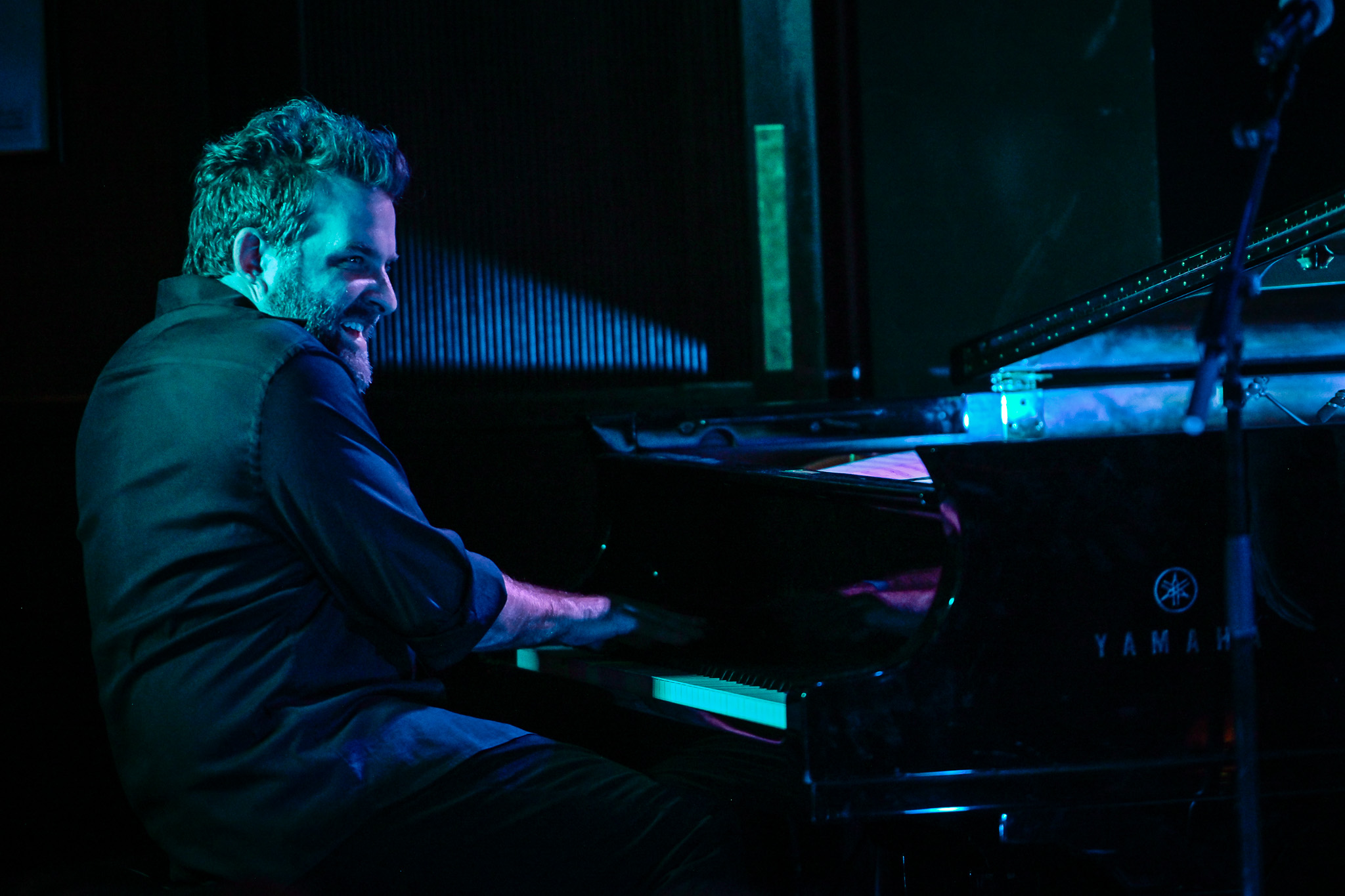 There was one occasion on which I knew I had genuinely struck gold. Pianist Taylor Eigsti (pictured above at Ronnie Scott's © Monika S Jakubowska), who has just been nominated for a Grammy for his album Plot Armor, was right at the end of a tour with a even-member band - including saxophonist Ben Wendel and vocalist Gretchen Parlato - who were not just working well together but also clearly appreciating each other’s company. Eigsti was enjoying the unique moment of making his debut as a leader at Ronnie Scott’s. There are a few weeks to go, but this special occasion, with a band mostly made up of mid-career musicians – no longer the newest best thing but not yet legends – was without doubt one of my gigs of the year.
There was one occasion on which I knew I had genuinely struck gold. Pianist Taylor Eigsti (pictured above at Ronnie Scott's © Monika S Jakubowska), who has just been nominated for a Grammy for his album Plot Armor, was right at the end of a tour with a even-member band - including saxophonist Ben Wendel and vocalist Gretchen Parlato - who were not just working well together but also clearly appreciating each other’s company. Eigsti was enjoying the unique moment of making his debut as a leader at Ronnie Scott’s. There are a few weeks to go, but this special occasion, with a band mostly made up of mid-career musicians – no longer the newest best thing but not yet legends – was without doubt one of my gigs of the year.

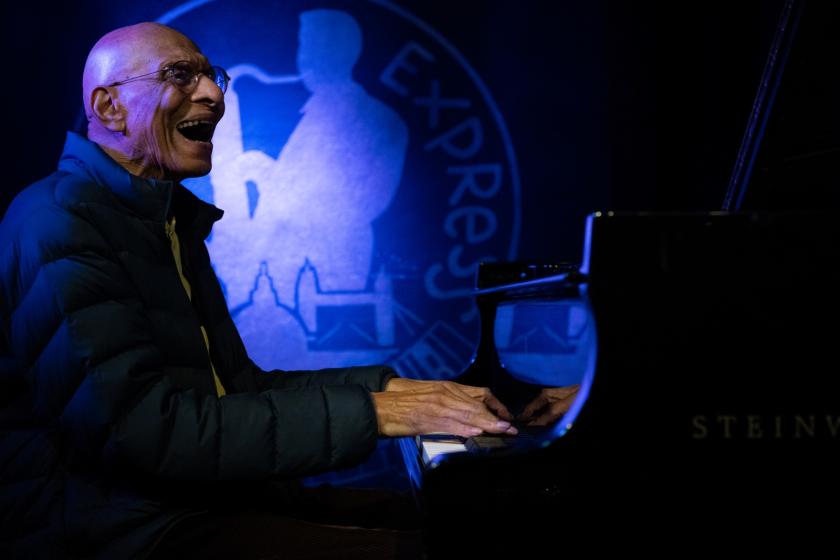













Add comment